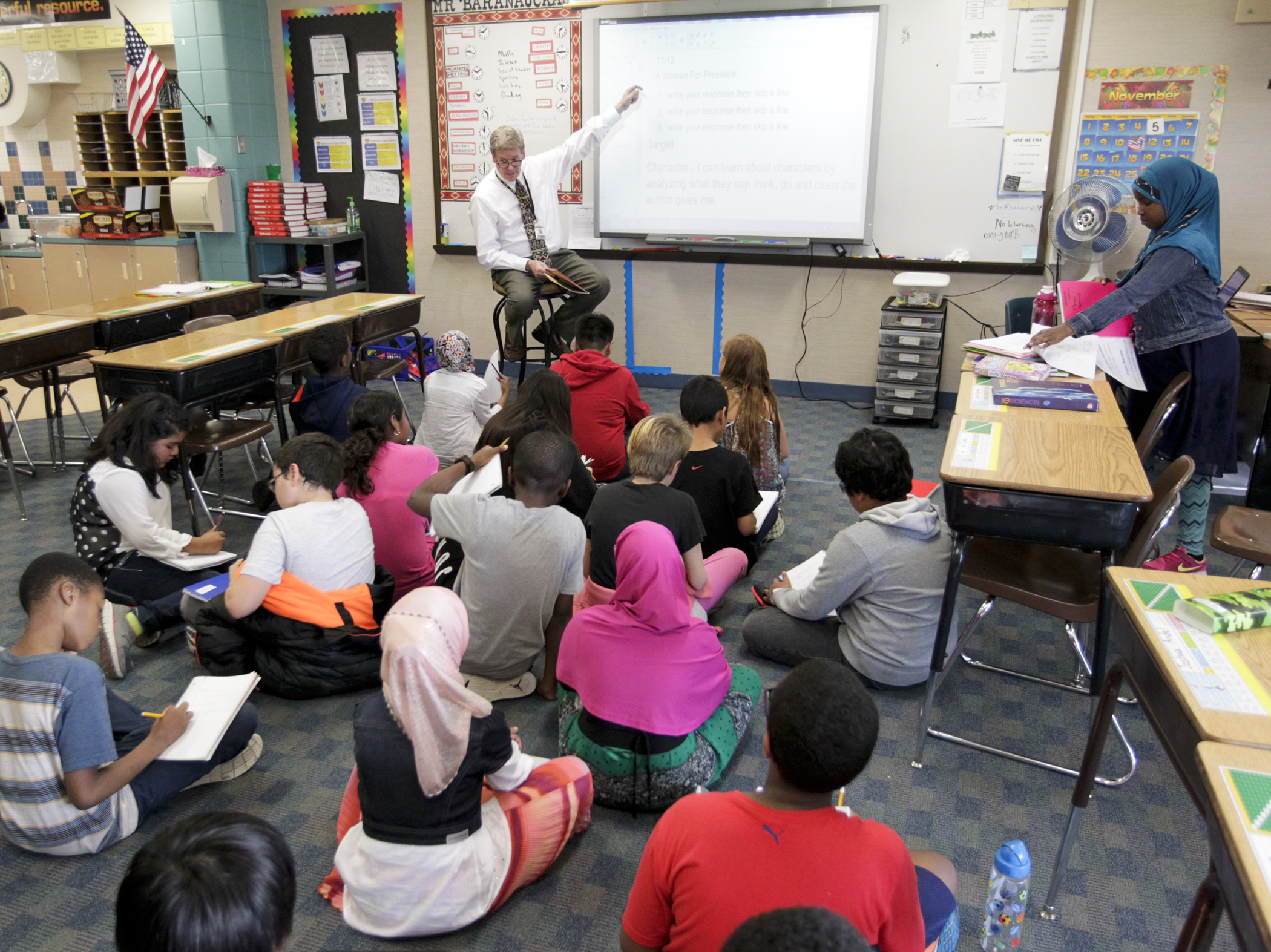Proposed changes to teacher licensure headed to House Floor

It’s been said that the crisis of COVID-19 has cast a brighter light upon a host of other crises, one of them being a teacher shortage. On Monday, the House Education Policy Committee approved a bill designed to get more teachers in the classroom and to help schools move online more easily in emergencies.
Sponsored by Rep. Hodan Hassan (DFL-Mpls), HF2950 would allow school districts and charter schools to adopt a crisis online learning plan under certain conditions. But most of its language deals with changes in teacher licensing. It would create a pilot program for short-call substitute teachers, allow those with a lapsed teaching license to accept a teaching position, and allow conditional teaching licenses for those who haven’t yet passed a licensure exam.
The bill, as amended, was approved by the committee on an 11-8 party-line vote, and is on its way to the House Floor. It has no Senate companion.
The language around crisis online learning plans would allow districts and charter schools to adopt up to five e-learning days through the end of the 2021-22 school year, require them to accommodate students without internet access at home, and provide digital devices to those without sufficient technology.
Most testifiers emphasized how a teacher shortage is making education increasingly difficult.
“Our schools are facing a crisis like we’ve never seen before,” said Education Commissioner Heather Mueller. “Our profession is not only at a breaking point, but many of the education professionals themselves are also at a breaking point.”
Deb Henton, executive director of the Minnesota Association of School Administrators, spoke of classes being combined in auditoriums and cafeterias to accommodate their size, and teachers having no preparation time, a theme echoed by several testifiers.
“Our schools have had an all-hands-on-deck approach all year long,” she said. “This bill should result in more substitute teachers being available, but these are short-term solutions.”
Rep. Patricia Mueller (R-Austin) unsuccessfully moved a delete-all amendment that would have eliminated the provisions on crisis online learning and most of the licensing changes. It would have also created a lifetime substitute teacher license. The amendment went down along party lines.
Rep. Peggy Scott (R-Andover) objects to the bill in its final form.
“I don’t think this is necessary,” she said. “It will put our kids further behind. This is an excuse to not have in-class learning.”
“This bill is not promoting online learning,” Hassan replied. “It’s making it possible in an emergency.”
Related Articles
Search Session Daily
Advanced Search OptionsPriority Dailies
Speaker Emerita Melissa Hortman, husband killed in attack
By HPIS Staff House Speaker Emerita Melissa Hortman (DFL-Brooklyn Park) and her husband, Mark, were fatally shot in their home early Saturday morning.
Gov. Tim Walz announced the news dur...
House Speaker Emerita Melissa Hortman (DFL-Brooklyn Park) and her husband, Mark, were fatally shot in their home early Saturday morning.
Gov. Tim Walz announced the news dur...
Lawmakers deliver budget bills to governor's desk in one-day special session
By Mike Cook About that talk of needing all 21 hours left in a legislative day to complete a special session?
House members were more than up to the challenge Monday. Beginning at 10 a.m...
About that talk of needing all 21 hours left in a legislative day to complete a special session?
House members were more than up to the challenge Monday. Beginning at 10 a.m...